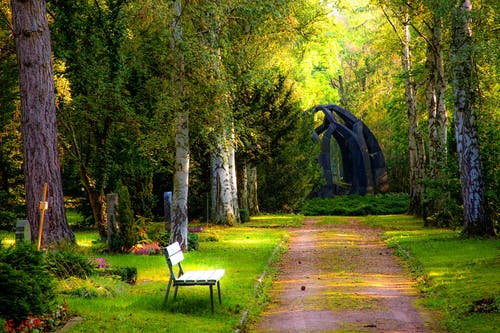There are different reasons people use memorial plaques, and they can be an important reminder of a historical event, an important person in the history of a local area, or even a memorial for a loved one.
Attractive and durable memorial plaques are an excellent reminder of the importance of the past, and you may see them in parks and public places, offices, churches, schools, and many other places.
Perhaps you’re charged with the design and implementation of a memorial plaque, or maybe it’s a project you’re thinking about taking on. If so, the following are some things to know about the relevance of memorial plaques and the creation of this type of long-lasting memorial.
An Overview of Memorial Plaques
Memorial plaques can go by different names including a commemorative plaque, just a plaque or if relevant, a historical marker.
They’re usually affixed to a flat, vertical surface like a wall or a stone, and they have text and in some cases an image as well.
The history of using plaques as memorials goes back far in history.
For example, plaques were used in the Benin Empire in what is now Nigeria as well as medieval Europe from the thirteenth through sixteenth centuries.
In the modern era, you’ll see historical markers and memorial plaques on preservation sites throughout the world.
They’re also used by local cities and towns, non-profits, companies and individuals.
Why Are Memorial Plaques Important?
If you’re unsure of whether or not you want to take on a project of designing a memorial plaque, be aware of their importance.
If it’s someone you knew personally, designing and installing one of these plaques can be a healing experience. Many people find it helps with their grief process.
Memorial plaques can also celebrate someone’s life and recognize their accomplishments in a long-lasting way.
Memorials create a link between a person and their importance in society or history. They also build a legacy for the person being honored, even in a small, simple way.
The Wording
When you’re creating a memorial plaque, the wording is extremely important.
Many of these plaques don’t have an image, making the wording that much more relevant.
While there’s no “right” way to word a memorial plaque, there are some standard guidelines often followed. These include:
- Certain phrases that are often used to start the dedication, which can include things like “In Memory Of,” or “Dedicated to the Memory Of,” followed by the person’s full name.
- Following a person’s name, and nickname if they have one, their lifespan may be listed next.
- Once those elements are listed, what comes next can be very personal. Some people will use a favorite quote of the person being honored, or they might list a few of their most significant accomplishments.
- If the memorial plaque is related to someone’s involvement with a particular building or an area, such as the building of a park, they might use the memorial plaque as an opportunity to show what kind of influence the honored person had on that area.
Images
If you are going to include an image on a memorial plaque, you have a few different options.
One option is to do an etched photo inserts.
An etched photo insert is a thin photo plate that’s attached to your memorial plate.
Another image option is called a photo relief image, which is a sculpted image attached to the plaque.
There is also a bas relief sculpted portrait. This is the highest-end option, and the portrait of the person being honored is hand-scaled in 3D, and it’s cast in bronze and then added to the memorial plaque.
If you’re using a photo so that you can add an image to your plaque, the plaque maker will need a high-quality photo.
Finally, when you’re choosing the material you’re going to use, think about the environment if it’s going to be installed outside.
If your memorial plaque is inside, you have more flexibility.
If it’s going to be outside and in a coastal environment, you will likely need to use something like Alloy 316 stainless steel. This is more expensive, but it is also more durable in a coastal environment.
Beyond the special consideration for coastal environments, other materials are available such as copper, zinc and cast bronze. If you aren’t sure what you need material-wise, speak with the memorial plaque company and they can help you choose the right option for your project.







